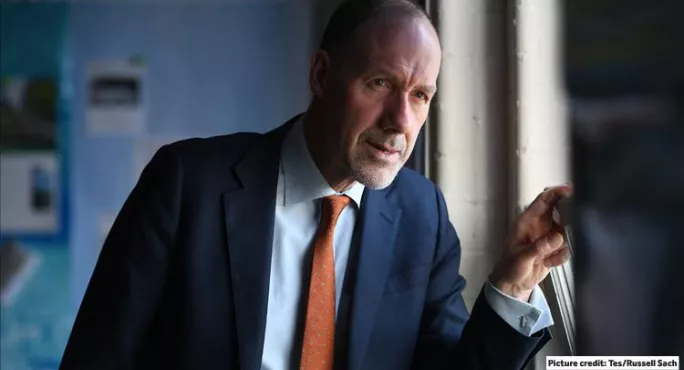- Home
- ‘We must tell pupils how we tackle our anxieties’
‘We must tell pupils how we tackle our anxieties’

It’s good that we are talking about mental health. Except that we need to stop talking about it and do something.
Powerful, high-profile figures like former political adviser Alastair Campbell, writer Matt Haig and campaigner and fellow Tes columnist Natasha Devon have helped us to recognise that mental health issues, like physical health issues, are a part of being human. These people are helping to puncture a long-standing stigma surrounding the topic.
And they need to. A recent Education Policy Institute report found that the number of referrals to specialist children’s mental health services has increased by 26 per cent over the past five years. It found that many children still face unacceptably long waiting times, and there are great disparities across providers.
Meanwhile, our schools, creaking under the strain of real-terms funding cuts, are struggling to provide in-school mental health support.
So, all of us will welcome the government’s renewed commitment to mental health services.
There are many things that need to be done. The two most important of these are improved funding for schools, and better access to specialist mental health services for young people who need that level of care.
But let’s look here at three thoughts on how else we might improve matters - the first two are for us as school leaders and the third is for the government:
First, we know that for many of us, stress, self-doubt and anxiety are manifestations of daily life that we learn to manage. The older we get and the more people we get to know, the more we learn that our own deep-rooted sense of being an imposter is shared by others.
My world is full of outwardly robust, inwardly anxious people. In fact, I don’t meet many apparently self-confident people who, in private, don’t reveal their insecurities. And this - to someone like me, often riven by sleepless self-doubt - is hugely reassuring.
Supporting children’s mental health
Imagine how powerfully reassuring it would be to hear such messages for young people in our primary and secondary schools and in our FE colleges. Because for those in their formative years, the very essence of who you are is too easily defined by the sense of self you have to project online, craving the external validation that comes from retweets and Instagram likes. It’s what Mary Aiken, in her book The Cyber Effect, terms “cyberchondria”.
In schools and colleges, we are uniquely placed to help young people deal with this problem, and to help their parents know how they can help. We can ask older pupils to talk about how they self-regulate their social media use. We can promote a culture whereby life is lived and enjoyed offline, outside, through real human interactions. And we can talk openly about how we deal with stress and anxiety.
Secondly, we can think hard about the purpose of education. What does it feel like to be a bright, aspirational 15-year-old in a school that uses a RAG-rating assessment system? That means that every half-term, in every subject, from every teacher, you get feedback on your supposed progress. What if you are working hard and keen to please your parents and yourself - only to get a red or amber rating from everyone?
We know teachers are trying to say: “You could do even better.” But what does it feel like to be told by every one of your teachers that nothing you do is ever quite good enough?
We must make sure that our assessment systems are proportionate, motivating, nuanced and humane. We mustn’t crush children’s self-confidence through systems driven by data and a desire to measure.
Thirdly, we must look again at our examination system and the unnecessary stress it engenders. GCSE is a qualification designed for an age when many young people started employment at 16. It isn’t like that now, with all young people expected to progress to further education or training.
And yet, on our watch, we have allowed this interim qualification to be stacked with crushing expectation - no coursework, no assessment of the softer skills employers crave, and a regime of memorising and testing that results in 15-year-olds routinely sitting 30 or more hours of exams. Then, for the 30 per cent-plus who don’t get their grade 4 or above in English and maths, we consign them to a battery of endless, unfathomable resits.
So, in a week when we think of mental health issues, let’s use the opportunity to call for better funding, better resources, better services to help the far-too-many young people who are suffering mental health issues.
But let’s also hold a mirror up to ourselves and our institutions - to the way each of us tries to navigate our way through a complex world, sharing those insights with young people in a culture that aims to support, nurture and shape their path to a physically and mentally healthy adult life.
Geoff Barton is general secretary of the Association of School and College Leaders
Keep reading for just £1 per month
You've reached your limit of free articles this month. Subscribe for £1 per month for three months and get:
- Unlimited access to all Tes magazine content
- Exclusive subscriber-only stories
- Award-winning email newsletters



